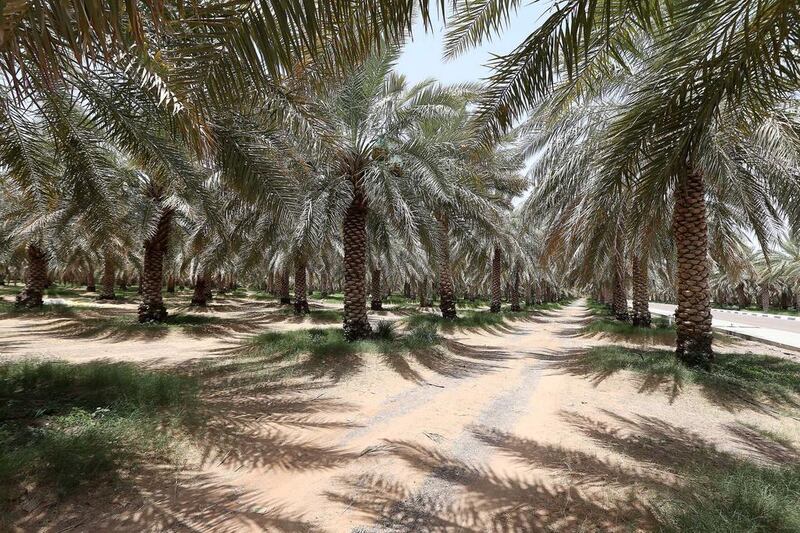ABU DHABI // The country’s date-palm-production system is to be recognised for its importance in international agriculture.
The Food and Agriculture Organisation (FAO) is to name UAE cultivation as a globally important agricultural heritage system, said Jose Graziano da Silva, director general of the UN organisation.
“The efforts to preserve and update knowledge on date palms has created a unique system that combines production and sustainability, safeguards biodiversity and helps to improve the livelihoods of those who till the land,” said Mr da Silva on Sunday at the Fifth International Date Palm Conference.
The FAO initiative recognises systems that reflect generations of farmers’ agricultural practices to preserve what they provide to local communities and to foster sustainable agriculture and rural development.
Other countries with recognised systems include China, Kenya, the Philippines and India.
Officials and researchers from 39 countries attended the conference, held to promote research on date-palm cultivation, improvement and protection.
Researchers presented ways to improve date-palm quality and ways to safeguard it from threats such as climate change, disease and pests.
The UAE’s production of the plants is a success story in a region where they are suffering, experts say. Morocco wants to immediately plant three million date palms to replace those devastated by the fungal bayoud disease, said Franz Hoffmann, a biologist and the conference chairman.
Researchers there are planting gardens in a desert area untouched by the disease.
In Iraq, years of war and devastation have wiped out as many as 40 million date palms, Mr Hoffmann said, and many who knew how to cultivate the plants had died.
“The young generation went to war, didn’t learn it, didn’t want to do it any more, and today, the Garden of Eden is no longer capable of doing this very basic thing that they once taught to the world,” he said. “Almost every country with the exception of, for example, here, you can tell such a sad story.”
Another challenge is that, naturally, date palms can produce up to 15 identical “children”, Mr Hoffmann said.
“If you need millions of plants, there’s no way, the options aren’t available. We don’t have enough plants. That is part of the disaster,” he said.
Mohammed Abdul Muhsen, a member of the conference’s scientific committee, said the date palm’s range of uses for nutrition and raw materials make it important for food security, especially in the Middle East.
“The date palm used to be everything for the Bedouin and the nationals in ages before, like the camel,” Mr Abdul Muhsen said.
Dave Reilly, who attended the conference, said he has been coming to the UAE since 2006 to exchange experiences with other attendees to manage his plantation in south Australia, Gurra Downs.
“It’s really to deal with challenges in our agricultural production system,” Mr Reilly said. “For us, it has been saline irrigation water.”
The conference opened with the Khalifa International Date Palm Award presentation.
Researchers, organisations and growers from France, Algeria, Saudi Arabia, Iraq, Oman, the UK and Sudan won awards.
The UAE’s Al Foah Company won the award for Best Development Project for its integrated date receiving, handling and storage system.
The Ministry of Presidential Affairs, UAE University, the Khalifa International Date Palm Award, the Date Palm Friends Society and the Date Palm Global Network organised the conference.
Sheikh Nahyan bin Mubarak, Minister of Culture, Youth and Community Development, and Sheikh Hamdan bin Mubarak, Minister of Higher Education and Scientific Research, also attended.
The conference was held under the patronage of the President, Sheikh Khalifa, and runs until Tuesday.
lcarroll@thenational.ae





